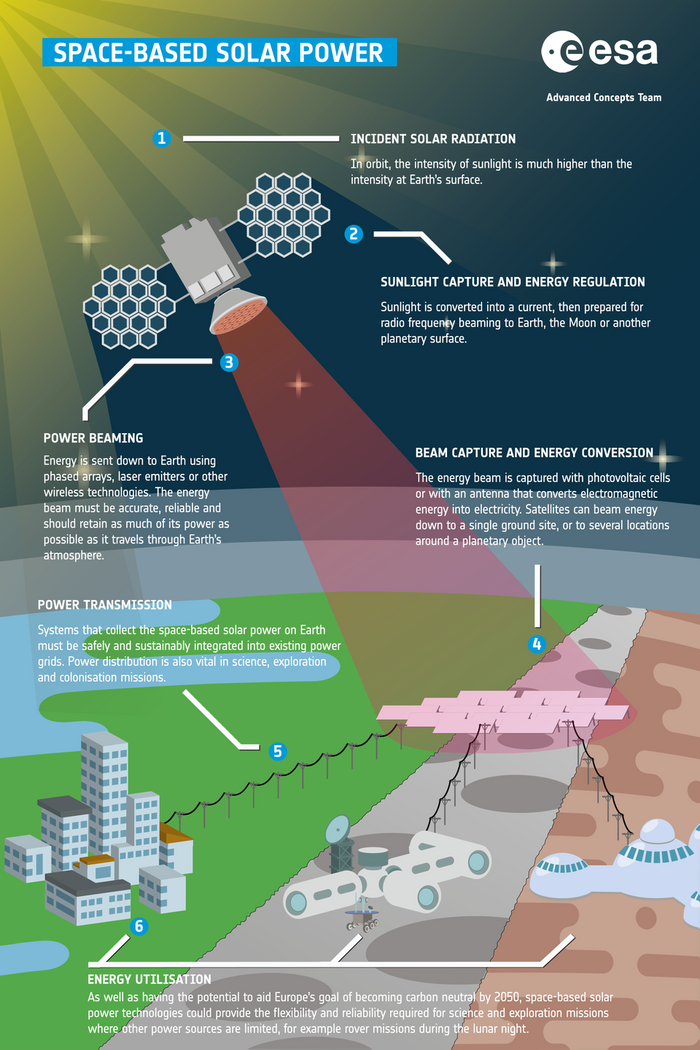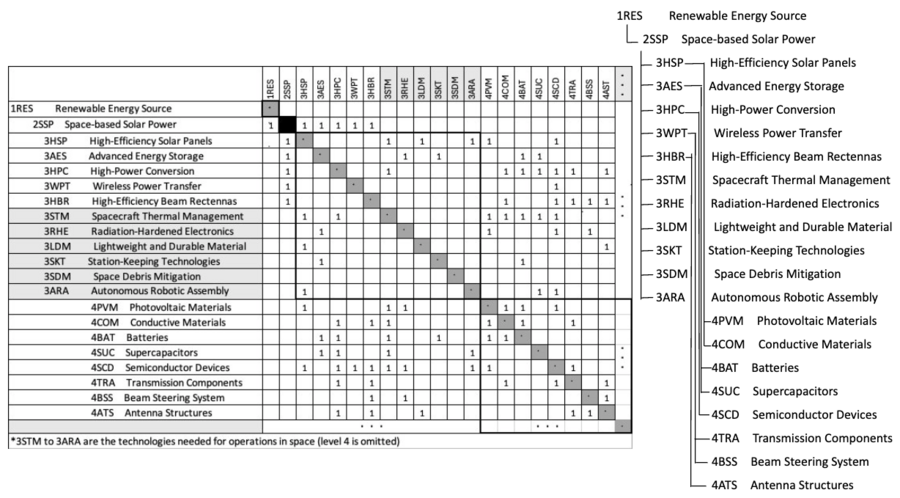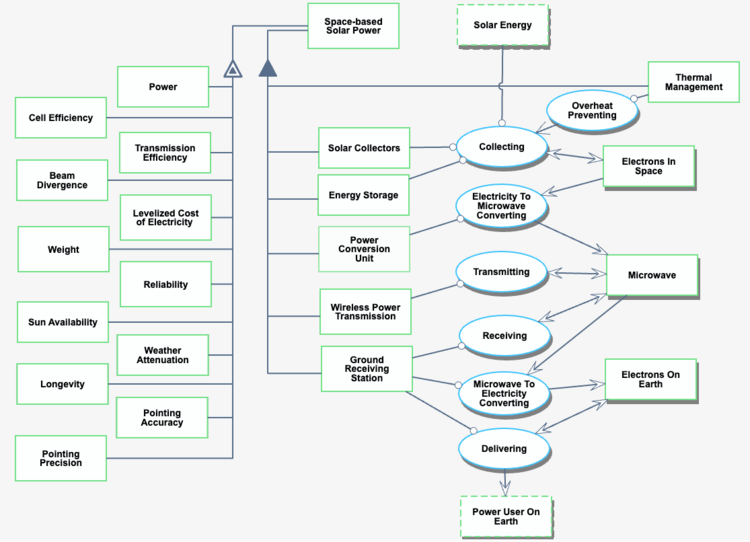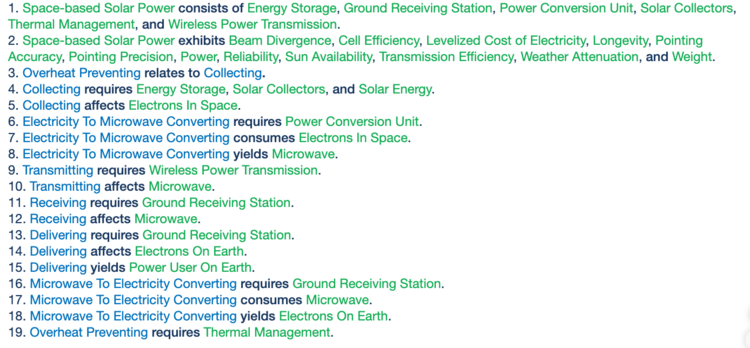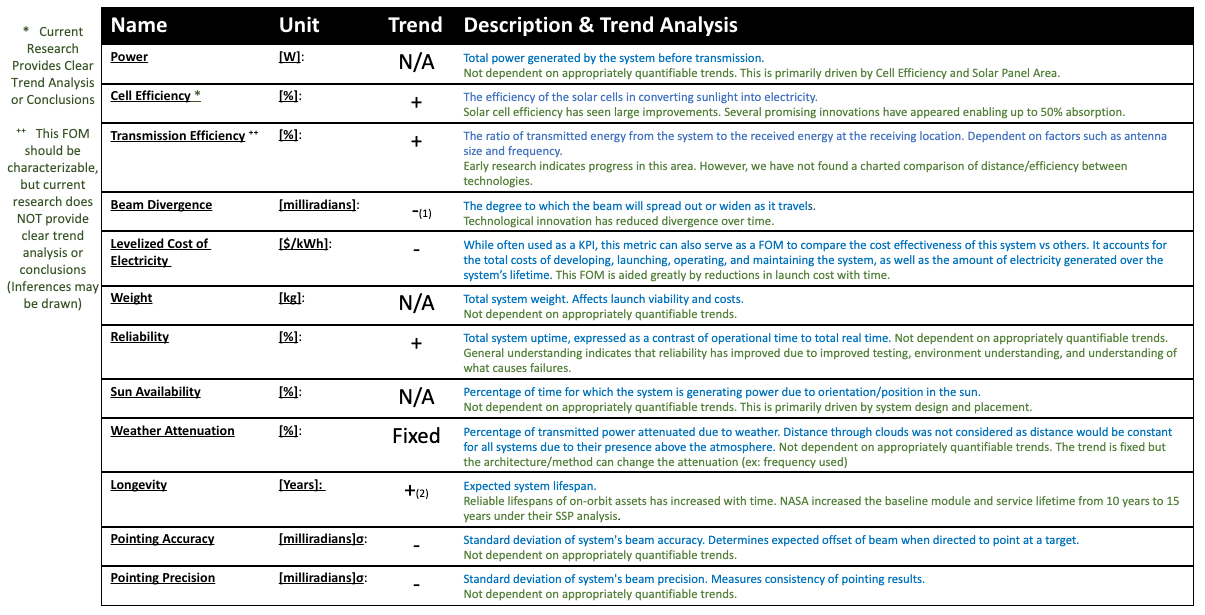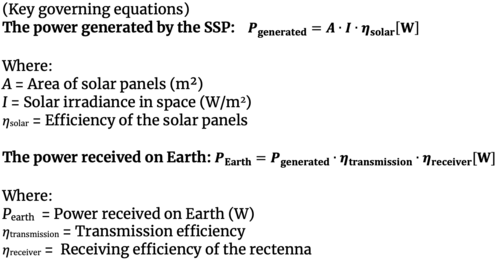Difference between revisions of "Space-based Solar Power"
| Line 15: | Line 15: | ||
A large solar array would be used to take advantage of the higher intensity sunlight outside of a planet's atmosphere using existing solar panel technology, then the electricity would be converted to an advantageous frequency for wirelessly transmitting long distances in a focused and steerable way – a key technical challenge. Finally, it would be received and converted back to electricity at the ground station or satellite for use. | A large solar array would be used to take advantage of the higher intensity sunlight outside of a planet's atmosphere using existing solar panel technology, then the electricity would be converted to an advantageous frequency for wirelessly transmitting long distances in a focused and steerable way – a key technical challenge. Finally, it would be received and converted back to electricity at the ground station or satellite for use. | ||
===Potential Use Cases:=== | |||
Simplify energy delivery to remote areas | Simplify energy delivery to remote areas | ||
| Line 23: | Line 23: | ||
Provide disaster relief to areas with damaged infrastructure | Provide disaster relief to areas with damaged infrastructure | ||
Recharge other satellites on orbit | Recharge other satellites on orbit | ||
Revision as of 05:12, 10 October 2024
Technology Roadmap Sections and Deliverables
- 2SSP - Space-based Solar Power
We’ve chosen the acronym 2SSP to represent our technology of Space-based Solar Power. The 2 in our acronym implies the system level, within the level 1 system of renewable energy source. Our level 2 system level can be broken down into level 3 subsystems (high-efficiency solar panels, wireless power transfer, etc.) and level 4 components (photovoltaic materials, antenna structures, etc.).
Roadmap Overview
The working principle of Space-based Solar Power is depicted in the below.
This technology transforms solar radiation using a spacecraft with solar panels, then wirelessly transmits it. The energy is then captured by a receiver and converted to electricity before storage and/or distribution.
A large solar array would be used to take advantage of the higher intensity sunlight outside of a planet's atmosphere using existing solar panel technology, then the electricity would be converted to an advantageous frequency for wirelessly transmitting long distances in a focused and steerable way – a key technical challenge. Finally, it would be received and converted back to electricity at the ground station or satellite for use.
Potential Use Cases:
Simplify energy delivery to remote areas
Provide more consistent solar power to high latitudes
Provide disaster relief to areas with damaged infrastructure
Recharge other satellites on orbit
Design Structure Matrix (DSM) Allocation
Roadmap Model using OPM
Figures of Merit
References
[1] Pereira, R. A. M., & Carvalho, N. B. (2022). Quasioptics for increasing the beam efficiency of wireless power transfer systems. Scientific Reports, 12(1), 21138. https://doi.org/10.1038/s41598-022-25471-0
[2] NASA. (2023, October 5). New study updates NASA on space-based solar power. NASA. https://www.nasa.gov/organizations/otps/space-based-solar-power-report/
[3] European Space Agency. 2023. Space-based solar power: seeking ideas to make it a reality. ESA. https://www.esa.int/Enabling_Support/Preparing_for_the_Future/Discovery_and_Preparation/Space-based_solar_power_seeking_ideas_to_make_it_a_reality
